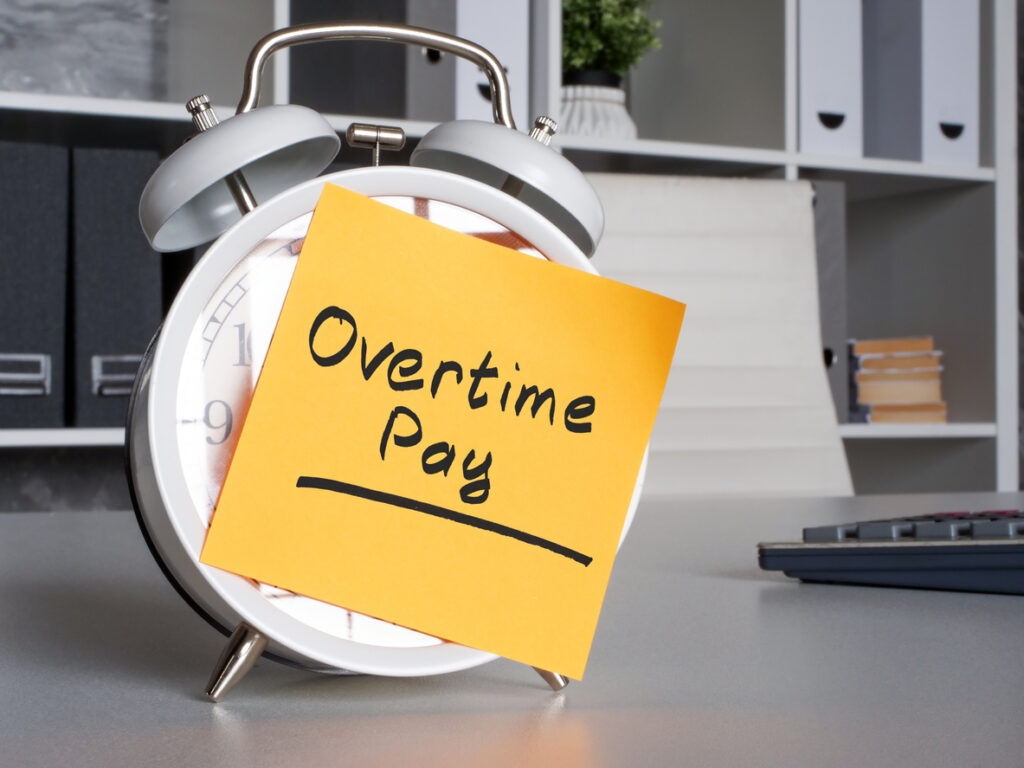
It’s Déjà Vu All Over Again: Federal Court Invalidates Department of Labor’s Overtime Rule
Last Updated on January 24, 2025
In 2016 and 2023, the United States Department of Labor (“DOL”) announced increases to the minimum salary threshold for the executive, administrative, and professional exemptions to the federal Fair Labor Standards Act (“FLSA”), which codifies the employment relationship as it relates to the payment of wages. On November 15, 2024, a federal judge for the Eastern District of Texas (the same court that ultimately invalidated the 2016 DOL announcement) issued a nationwide injunction of the DOL’s 2023 Overtime Rule, which will serve to prevent the increased salary threshold for exempt status which was scheduled to take effect on January 1, 2025, and which retroactively invalidates the salary threshold figure for exempt status that took effect on July 1, 2024. As a result, the exempt salary threshold has reverted to the 2019 figure of $684 per week ($35,568 per year). While the DOL may appeal this decision and perhaps even obtain an appellate ruling reversing this decision, the commencement of the second Trump administration in January 2025 will likely foreclose future enforcement of the Overtime Rule.
Under the FLSA, employees generally must be paid an overtime rate of 1.5 times their regular rate of pay for all hours worked beyond 40 in a workweek. However, overtime compensation for salaried employees is subject to certain exemptions and threshold requirements.
The FLSA exempts certain administrative, executive, and professional employees from its minimum wage and overtime payment requirements so long as certain requirements are met, one of which is that the employee must be compensated on a salary or fee basis at no less than the established salary level. For a number of years, the exempt salary threshold has been $684 per week ($35,568 per year), although the DOL has attempted on several occasions to revise this figure upwards. In July of 2024, the DOL’s Overtime Rule went into effect, raising the exempt salary threshold from $684 per week to $1,059 per week. This meant that an employee would need to earn $43,888 or more per year in order to be exempt from FLSA overtime requirements. This threshold figure was scheduled to increase to an annual salary of $58,656 on January 1, 2025, with upward adjustments every three years thereafter.
In issuing its decision, the Texas court relied on the United States Supreme Court’s decision earlier this year overruling long-standing precedent that required courts to defer to “permissible” agency interpretations of the statutes those agencies administer in favor of a judicial interpretation standard which enables courts to invalidate agency rules more easily. This new standard provides employers with a powerful tool to fight what they perceive to be agency overreach.
The Texas court’s decision means that employers planning to convert employees from exempt to non-exempt status on January 1, 2025, based on the increased federal salary threshold, may now abandon that strategy. As for employees whose compensation status was altered in conformity with the July 1, 2024 threshold, as well as for those employees who had been advised that their compensation levels would be increased as a result of the requirements of the Overtime Rule, employers will need to consider the impact on employee morale if they roll back those changes. Crafting effective messaging will be important, both for legal compliance and for maintaining positive employee morale. Note also that many states, including North Carolina, require that employees must be provided advance notice of changes in their wages, particularly if there is a reduction in wages. It is also critical to note that neither this ruling nor the invalidated Overtime Rule changes the analysis that must be undertaken to ensure that exempt employees meet the requirements of the applicable duties tests for administrative, executive, or professional exemption. Finally, in evaluating next steps, don’t forget that several states, including Alaska, California, Colorado, Maine, New York, and Washington, have enacted higher salary thresholds for exempt status than those issued by the DOL.
If you have questions about this court ruling or any other employment-related matter, please call Connie Carrigan at (919) 250-2119 or e-mail her at ccarrigan@smithdebnamlaw.com.

